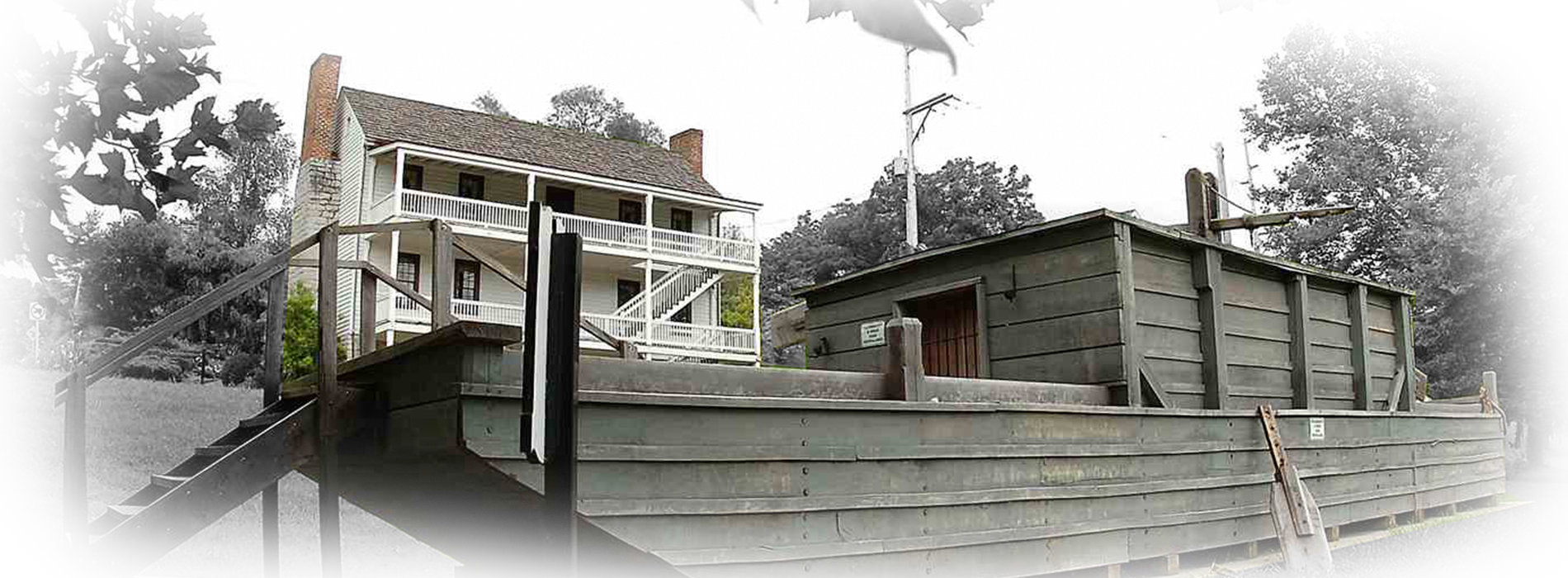
After mustering out of service with the Virginia Colonial Militia, Colonel Gilbert Christian brought his family in 1772 to settle along Reedy Creek, an area he had come to love while in service. In 1775, he moved his family to the mouth of Reedy Creek on the Holston River on what had become a large plantation. Soon other families followed, and the village of Christianville sprang up. It was near Christian’s home that the famed Donnelson Flotilla crashed in route to what is now Nashville. The good people of Christianville helped the families repair their boats and re-provision. Following his father’s death in 1802, Robert Christian subdivided his father’s vast lands and sold the first 3.5 acres, the westernmost portion, to William King of Saltville, Virginia.
King, owner of huge salt mines in Virginia, recognized that the Island Road and the Reedy Creek Road, two of the oldest in the country, ended at the Holston River. People and goods going west would need to continue their journey by water. In 1802, King established King’s Boatyard, often called King’s Port, and began the construction of a three-story building to house the men he would hire to build flatboats to transport his salt west. Along with this large dormitory, he built wharves, warehouses, a large three-story barn, and scale sheds. He hired agent John Lynn to manage the boatyard, and a bustling commercial center grew along the river banks. In addition to salt, the flatboats carried iron ingots, produce in season, furs, mountain herbs, and other goods.
Following King’s death in 1808, John Lynn continued to manage the boatyard until 1814 when it was leased from King’s estate by George Hale, a prominent merchant and farmer from Rogersville. All went very well for Hale until the spring of 1816 when a volcanic eruption in the East Indies significantly change the weather of the southeastern U.S. bringing freezing temperatures, snow and ice throughout what should have been a busy summer. With no produce and herbs and wagons of salt and iron unable to reach the boatyard, the business foundered. Customers were unable to pay their bills and Hale lost his shipping contracts. In 1817, he turned his store over to his brother and retired to his farm in Rogersville. A few months later, the land and buildings of King’s Boatyard were sold at sheriff’s auction.
Since 1810, Richard and Margaret Netherland and their children had been living on the Long Island of the Holston where they had established a large plantation on the land inherited through Margaret’s family. Richard had been watching the increasing stagecoach traffic that ran daily along the Great Stage Road in front of the King property. Seeing a business opportunity, Netherland purchased the lands and buildings at auction and immediately obtained a stagecoach contract, moved his wife and six of his ten children to the three-story building, and opened it as The Netherland Inn.
The Inn remained in the Netherland family until 1906 with many significant events taking place there. Famous visitors who stayed at the Inn included Presidents Andrew Jackson, Andrew Johnson, and James K. Polk. The first Charter for the City of Kingsport was signed in the first floor rooms in 1822 joining the villages of Christianville and Rossville into one. Since Richard served as county clerk for Sullivan County, many business meetings were held there as well as meetings of the first committees attempting to bring the railroads into eastern Tennessee. The Inn became a gathering place for locals as well as a favored stop for coaches along the Great Stage Road.
The Netherland Inn is a registered National Historic Site and the only site on the register to have been both a boatyard and a stagecoach stop. The complex now consists of the Inn, a Museum of Pioneer Transportation in the reproduced Bank Barn, a replica flatboat, and several cabins pre-dating 1800. It is operated by the Netherland Inn Association, an all- volunteer organization, and is supported by association memberships, donations, and fund raisers. The Inn and other buildings are open to the public free of charge Saturdays and Sundays, from 2:00 to 5:00 p.m., May through October, with the last tour beginning at 3:30. Knowledgeable guides tell the many stories of King’s Boatyard and the Netherland family. Paid group tours are available weekdays by appointment, and special events occur throughout the year.